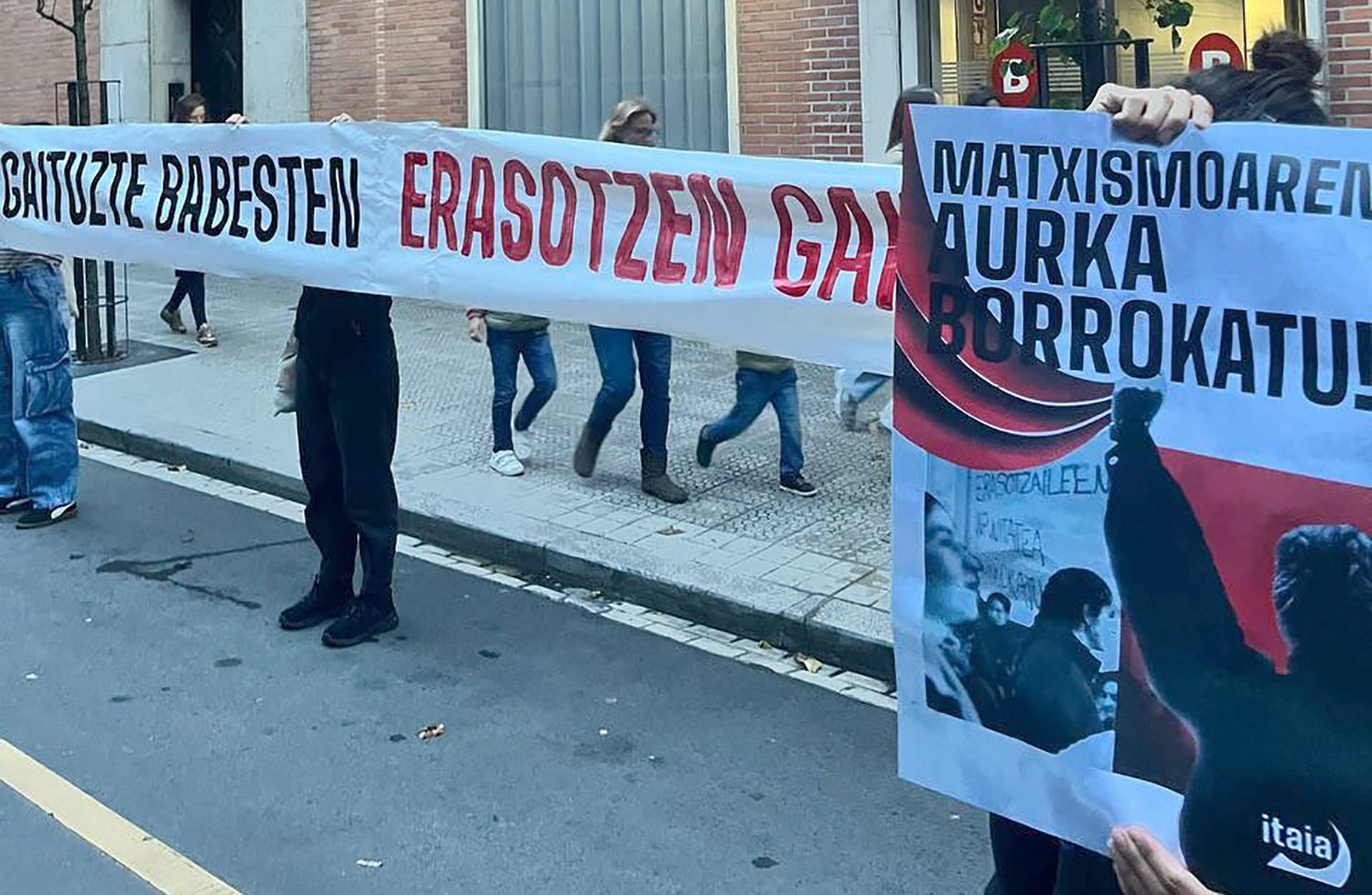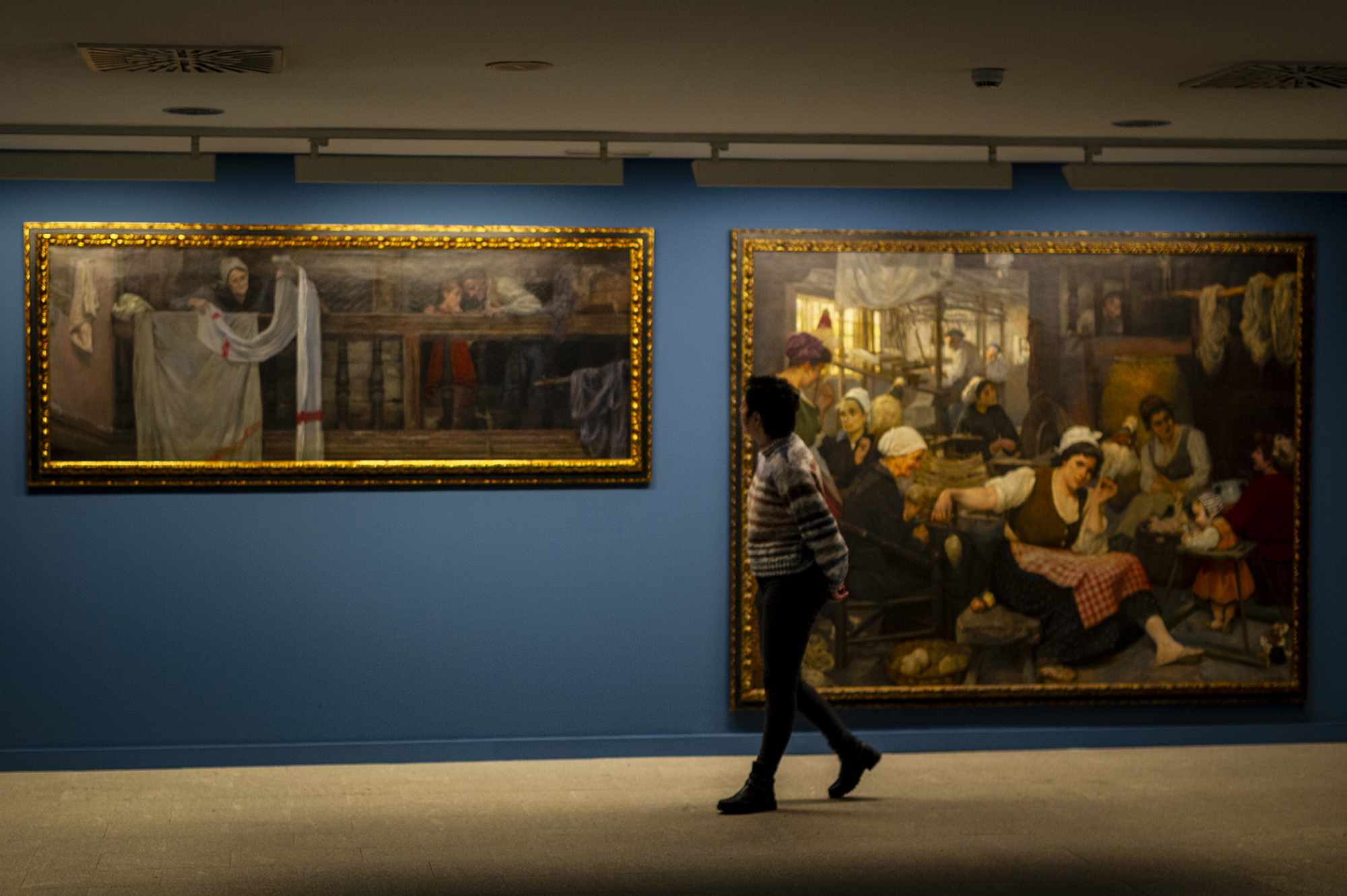Do women also care at home about buying gifts?
- Studies say that women are in charge of buying gifts. Immersed in the Durango Fair and close to Christmas, it seems a good topic to talk about the reality the surveys show, the excuses men put and the concept of "invisible mental load" women have.

The topic has been extracted in the informal colloquium: The Christmas dinners are still attended by the women of the house, for having everything prepared and ordered... and for gifts. "To buy, and from all that is behind: to look at the tastes and needs of the person we are going to give away, to take time to think what the illusion will do, to pamper in the election, to look at the details...", adds the interlocutor.
Although our conversation has no statistical value, in the research that has been done there is nothing more to trace a little, to corroborate the belief that most gifts are bought by women, by far in the case of clothing, but it is also women who buy toys for children, and if technology involves more men. A survey this year reveals that more than half of the women of EE.UU. They also buy the gift they have left to give it to their partner or their children and give it to them.
In the background, of course, there is education and expectations based on gender, and it is called “invisible mental load.” What is more, burden or invisible, it is not clear
"We don't like agglomerations."
In some of these surveys we've read that men are unable to find the perfect gift and don't want agglomerations or tails. Well, man or woman, nobody likes. That getting right in clothes is impossible, that we have bad taste, that the person we're going to give away is "very difficult" -- you've also heard around you to get rid of buying gifts.
In the background, of course, there is education and expectations based on gender, and it's called "invisible mental burden." This burden includes domestic organization, agenda, commitments… and, in this case, gifts. After all, the gift has a great deal of dedication, mime, often head breaking, and time, as has been mentioned. The band that constitutes this invisible burden is endless and the most common thing is for women to fall out of the back, since these tasks are often assumed as their responsibility. What's more, load or invisible, it's not clear.
Irungo Landetxa auzoko pala txapelketa mistoan, hogei bikotetik bakarra da emakumeek osatua, 40 lagunetik bi baino ez dira emakumeak: Idoia Karrera eta Loiola Zuazu. Lehiaz, txapelketa misto eta ez mistoen arteko aldeez eta joko-mailaz mintzatu gara haiekin. "Emakumeok... [+]
Aspaldi pertsona oso zatar bat ezagutu nuen, urrun izatea komeni den pertsona horietako bat. Bere genero bereko pertsonengana zuzentzeko, gizonezkoengana, “bro” hitza erabili ohi zuen. Edozein zapaltzeko prest zegoen, bere helburuak lortzeko. Garai hartatik hitz... [+]
La bajona kolektibo kide Heiko Elbirak salatu du psikiatriak zisheteroarautik aldentzen diren erotikak kontrolatu nahi dituela.
Prentsaurrekoa eskaini dute ostegun honetan Marc Aillet Baionako apezpikuak, elizbarrutiko hezkuntza katolikoko zuzendari Vincent Destaisek eta Betharramgo biktimen entzuteko egiturako partaideetarikoa den Laurent Bacho apaizak. Hitza hartzera zihoazela, momentua moztu die... [+]




















